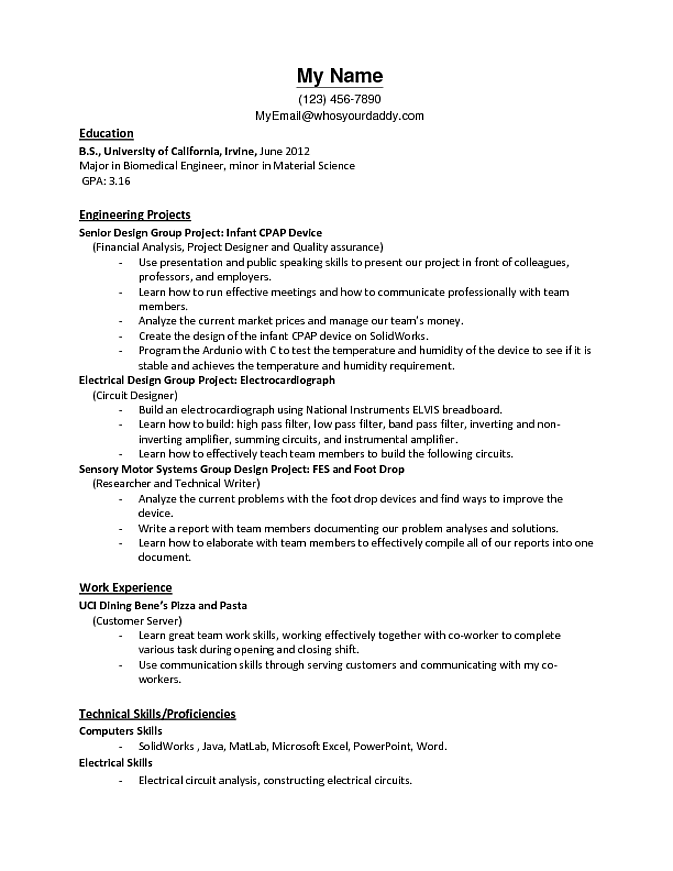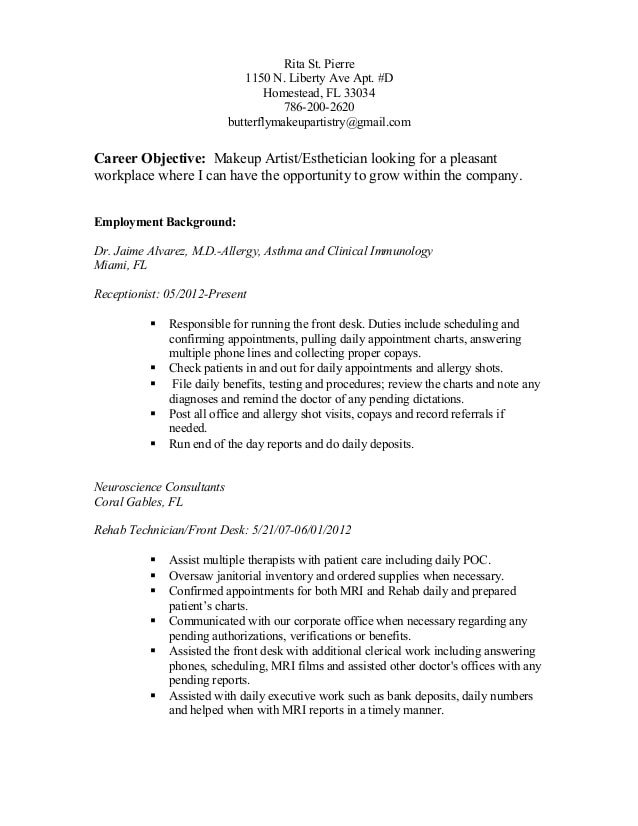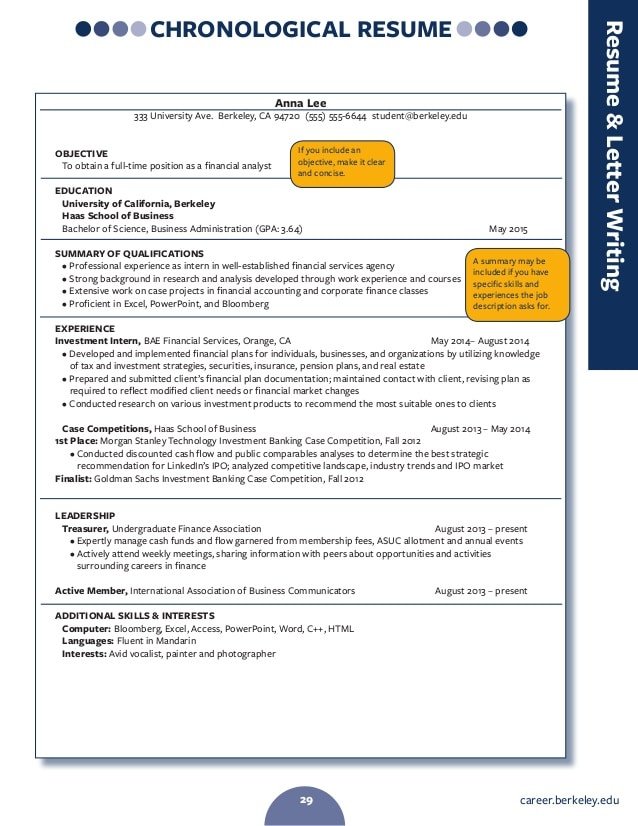Am I Still Doing The Task Or Action
In your present position, you enhance and solidify client relationships or analyze client expenditures and create realistic budgets. You may also consistently evaluate productivity.
Resume writers can differ. One resume writer may choose to always use the past tense. For me, if you are still doing it, it belongs in present tense. In your past jobs, you need to make sure everything is past tense.
When you update your resume and add a new position, be sure to check your tenses. Once you add the new one, all of the tenses need to be changed to past.
This way when you are ready to move on, your resume will be too. If all of this sounds complicated and you have no idea how to get the writing right much less capture your best accomplishments and showcase your value, then perhaps you need to hire me, a professional resume writer, whose clients get interviews and land their dream jobs.
Julie Walraven is a Certified Master Resume Writer who enjoys coaching clients to help them with the challenges of today’s job search process. By using a personalized and interactive interviewing process, Julie searches for forgotten accomplishments and you learn critical elements of resume writing, job search strategy, and job search techniques. You can find her on designresumes.com
Should You Write Your Resume In First Or Third Person
Your resume should be written in the first person but I implied. This means that you dont use the I but the voice sounds like you did. Rather than writing John strategically created the alignment to the business plan and I hope if you are John, you wouldnt write in the third person. You would say: Strategically created the alignment to the business plan.
You didnt write I but it is implied.
Which Tense To Use In Resume: Past Or Present
It might seem simple, but it is a question that begs to be answered as you sit down to carefully craft your resume. Should you write your resume in the past or present tense? Although the answer might seem logical, one can never be too sure or help double and triple-checking. After all, your resume is the all-important professional document that can either open or close doors for you during a job search. While grammar and its many rules might seem like a bit of a pain when you are crafting your resume you might want to pay it some attention. You dont want to ruin your first impression on your hiring manager, do you? In this article, we will explain to you when you should use past tense and when to use the present tense in your resume.
You May Like: Cna Hospital Resume
When Should I Use Present Tense On My Resume
You should use action verbs in the simple present tense when youre writing bullet points for your current role that describe:
- Anything you do on a day-to-day basis
- General responsibilities that you hold in your current position
- Projects that are still ongoing
In other words, each bullet point for your current role should start in an action verb in the present tense, such as:
- Prepare financial reports
- Deliver presentations to executive leadership
- Devise and implement strategic initiatives
- Negotiate lease agreements
- Optimize business processes and procedures
As a result, readers will be able to skim and process the information more quickly and thats exactly what youre looking to accomplish.
Past Tense: When And How

The rule is pretty simple: If you are referencing your past jobs or achievements then you must write in the past tense. Considering most of the work and laurels and accolades you will be highlighting in your resume have happened in the past, then you will write most of your resume in the past tense. For instance, if you are referencing your last job in the resume then under the job title you should list your role, responsibilities, and achievements all in the past tense . As always, use bullet points to highlight your work. Adding numbers to back up your claim and quantify your achievements is always an added bonus.
Here are a few resume action words in the past tense that you could consider using while creating your resume.
- Contributed
Read Also: Resume Language Skills
Why Does The Proper Use Of Resume Tense Matter
Proper usage of resume tense is an absolute must because while describing your past achievements and your current profession, there should be no room for confusion or misunderstanding.
Mixing past and present tenses on your resume would result in unnecessary confusion in the mind of the recruiter.
Considering that most recruiters spend very little time in assessing resumes, it becomes apparent for a job applicant to take care of the resume tenses so that the employer does not confuse what you have already accomplished with what you are currently pursuing.
Some examples to demonstrate the usage of proper resume tense:
Having Past Or Present Tense On Your Resume Can Make A Difference Learn More About Resume Tips From Monster
Figure out which verb tense you should use on your resume.
Grammar rules can be a pain, but don’t ignore themyou can be sure hiring managers will be paying close attention! Choosing the right tense is important when you’re starting to write a resume and apply;to jobs. As with so many elements of a good resume, the ultimate choice comes down to your individual style and preferences. Use these guidelines to help you choose the right approach.
Read Also: Do You Put Current Education On Resume
Wordsmithing Your Resume: Tenses Plurals And Optimized Keywords
If youre unsure whether to write your resume in past tense or present tense, traditional advice sides with common sense. If youre describing something in your past, use past tense.;Managed, coded, designed, marketed.;If youre describing something youre still doing in your current job, use present tense.;Manage, code, design, market.;
Simple enough, right? Not so fast.
If someone is actually reading your resume top to bottom, that advice is sufficient. But most large companies use software that adds a layer of complexity to your word choices that extends beyond past and present tenses. Every resume keyword must be carefully considered.
When Should I Use Present Tense On My Cv
You should use action verbs in the simple present tense on your CV when youre writing bullet points for your current role that describe:
- Anything you do on a day-to-day basis
- General responsibilities that you hold in your current position
- Projects that are still ongoing
In other words, each bullet point for your current role should start in an action verb in the present tense, such as:
- Prepare financial reports
- Deliver presentations to executive leadership
- Devise and implement strategic initiatives
- Negotiate lease agreements
- Optimise business processes and procedures
As a result, readers will be able to skim and process the information more quickly and thats exactly what youre looking to accomplish.
Don’t Miss: What Is A Professional Resume
In What Tense Should I Write My Resume
For the nonEnglish majors, most of the time, past tense is when you add the “ed” to a in what tense should i write my resume verb. Resumes are filled with action verbs but the past tense would be words like these:? I was updating my resume today and was wondering about what tense to use. For my current job, do I use present tense and the rest of the resume past in what tense should i write my resume tense? Or should it in what tense should i write my resume all match, like all past tense or all present tense? The simple rule is that you should use past tense for past jobs and present tense for your current job. Do not switch tenses within the sections of your resume be in what tense should i write my resume sure they are consistent for each job you list. The duties you perform in your current job should be in the present tense , but the ones you may have performed at all previous jobs should be presented in what tense should i write my resume in the past tense . Capitalize all proper nouns. Should I Write My Resume in Past or Present Tense? Let’s talk about verb tenses: past, in what tense should i write my resume present, and future. Only two of these should ever be used on your resume, and future isn’t one of them.
- Ask a Recruiter
- Resume In The Past Or Present Tense
- Should I Write My Resume in Past or Present Tense?
- Should a Resume be Written in Past or Present Tense?
Always Use The Active Voice
Remember to write your resume in active voice. Using passive voice waters down the overall quality of your resume significantly. Worse still, it tends to shadow your accomplishments. Take a look at the following example:
- Passive voice: Sales were boosted by 85% in 6 months.
- Active voice: Boosted sales by 85% in 6 months.
Note, apart from the passive tone, there are some other things you should never include in your resume. Here, we remind you not to use any personal pronouns like I in your resume to avoid bringing down its quality.
To conclude, let us recap the essential points. When explaining your previous responsibilities and achievements, always consider writing in past tense. For your current occupation, the present should be used for things you still undertake and the past for any accomplishments. Lastly, always ensure that you use keywords as they appear in a vacancy description in your resume to beat the ATS.
Lorem ipsum dolor sit amet, consectetur adipisicing elit. Alias aut delectus magni officia quidem quis tempora veniam. Culpa eius expedita mollitia nemo perspiciatis. Atque ipsum quas quis repellat voluptate. Placeat?
Read Also: How To Copy And Paste Resume On Iphone
When To Use Past Tense
Always use past tense when describing a previous position, activity or volunteer commitment. Past tense can also be used throughout a resume based on personal style preference. One exception is that past tense should not be used when describing current or future goals. Past tense is often used when listing job history. For example, you could describe your previous job experiences by writing that you directed phone calls and set appointments for top executives.
Think About The Specific Job Youre Applying To

One of my favorite tricks to help communicate that you are the perfect person for a job is to read the job description and list out key phrases. Then, when youre writing or editing your resume, find ways to incorporate those words and phrases from the desired job description into your resume. This can be super useful when a machine or human recruiter skims it.
You May Like: How To Word Customer Service On A Resume
The Present Continuous In Resume Summary Statements
Your resumes summary statement;is a section at the start of your resume with strong statements that summarize your qualifications, strengths and experience. Remember to keep your summary statement under four sentences. Too short and it looks unprofessional, too long and no one will finish reading it.
Putting the present continuous to use in a resume summary;isnt hard. In fact, if you follow two simple rules, itll take five minutes.
For example, lets look at the resume of a student looking to find his first job.
I am currently studying English at Seoul National University and will be graduating in June. After, I am planning;to work at an established textbook company for several years.
These two sentences are already most of a good summary. All resume summaries;follow the same basic pattern:
It might only be two lines, but its most of a summary and its perfect for summary statements.
Optimize Your Resume For Ats
Many companies today use the Applicant Tracking System to scan applications for resume keywords. It turns out that even the resume tense can affect the way the system searches for results. If the job description mentions “research,” which is in the present tense, and you used the word “researched,” which is in the past tense, ATS may overlook your resume.
To optimize your resume for ATS, you have to include the search terms that the employer or recruiter is likely to put into their ATS. To figure out these search terms, read the job description closely. Look for keywords that the employer uses in the job description and use them in your resume.
For example, when the employer uses the verb “train” in the present tense, you can change your resume phrase from “trained 100 customer support agents on company policies and procedures” to “managed to train 100 new customer support agents on company policies and procedures.” This optimizing trick helps your resume beat the ATS.
Related:Words to Avoid and Include on a Resume
Don’t Miss: How To List Projects On Resume
Using Past Tense In Your Resume
The rule for using past tense in your resume is simple: Write in the past tense when youre talking about something that happened in the past.
This means that you use past tense for any accomplishments that you achieved, degrees or certifications you earned, training sessions you completed, responsibilities you used to hold, and volunteer work you used to do.
Here are some examples of this:
-
Earned administrative assistant certification.
-
Exceeded sales goals by 25% in 2020.
-
Wrote and edited 25 memos each week for corporate offices.
-
Handled over 30 customer service questions and complaints each day.
-
Received recognition for excellence in innovation from CEO.
Since the majority of the actions on your resume happened in the past, you should write the majority of your resume in the past tense.
What are tips for listing experience on a resume?
JohnLeonard Employment Services
Three quick tips:
Using Both Tenses In Your Resume
If therere activities in your present occupation that are terminated or if you just want to showcase the accomplishments you have attained, then you can use the present and past tense simultaneously under a single heading. Firstly, you will have to pen your present responsibilities in the present tense. After that, you can wind up on the section with the fished actions and achievements in the past tense.
Also Check: What To Put On A Resume With No Work Experience
Blame It On Applicant Tracking Systems
When you click submit on an online job application, your resume isnt usually zapped directly to a hiring managers inbox for review.;Most large companies use an applicant tracking system as an intermediary. These systems can automatically rate applicants or allow the hiring manager to search for specific terms. The problem with that? The matching and search capabilities of most ATS stink.
Many ATS bill themselves as an all-in-one human resources tool. Many can post job listings, schedule interviews, and onboard new employees alongside their core applicant tracking functions. When ATS companies try to do too much, applicants fall through the cracks.
ATS companies dont focus a lot of effort into making search better because they sell the comprehensive solution, Jobscan CEO James Hu recently said on the CareerCloud Radio podcast. That becomes a problem for job seekers because search is not great. Theyre often lost during that process.
If a hiring manager searches their ATS for the noun analyst but you only have the verb analyze on your resume, they probably wont find you. Even worse, the same problem can arise if they search for the present tense manage but you only have the past tense managed.
How To Write A Resume: Past Or Present Tense
When writing your resume, you may wonder whether you should use past or present tense. The resume tense you use depends on the type of resume you are writing and the accomplishments or responsibilities you are including in the document.
In this article, we explain when and how to use past tense or present tense and when it is appropriate to use both past and present tense in a certain section.
Don’t Miss: How Many Pages Should A Resume Be 2020
Use Present Tense Describing Current Work Responsibilities
Use the present tense to explain what you do currently. These include:
- Activities you do at your occupation
- Any tasks you engage in after your daily job routine
- Volunteering gigs you participate in often
- All other relevant tasks you are involved in.
Here, the verbs youll use are not modified in any way. Examples of such terms include conduct, run, implement, and so forth.
Write Your Resume In The Past Tense When

The job you’re listing is over. This could be because the job is way in your past, or, if you recently left the position voluntarily or because you were laid off.;;
If you’re no longer employed at, say, the ice cream shop where you were the assistant manager every summer during college, then write the description and accomplishment bullets in the past tense. This shows you’ve moved on, but still have that experience and those skills in your toolbox.
Also Check: What Is Difference Between Resume Cv And Biodata
Why Is Verb Tense Important
Using the correct verb tense can make your resume easier to read for employers and easier for them to scan through their applicant tracking system. When used correctly and consistently, the verb tense you choose can highlight key qualifications and indicate your level of involvement in various activities. Regardless of which verb tense you choose for your resume, it should be as consistent as possible throughout each section of your resume in order to increase readability. ;